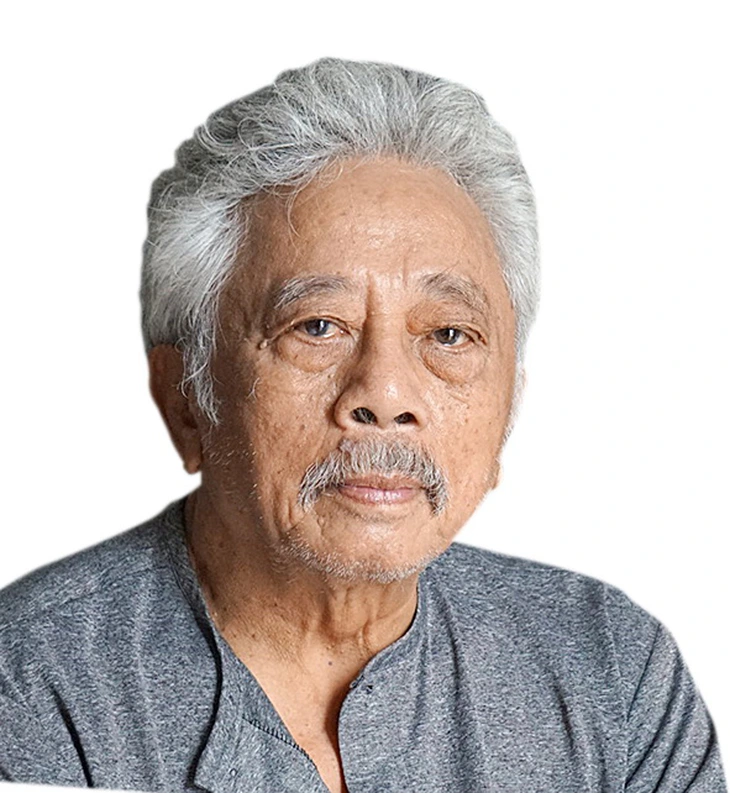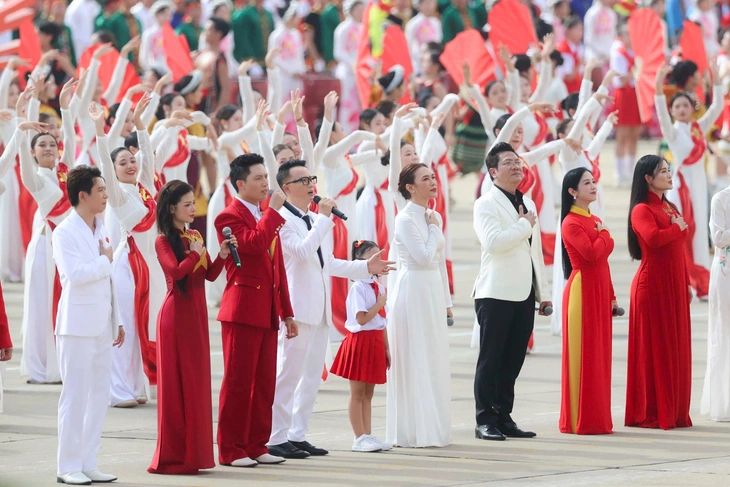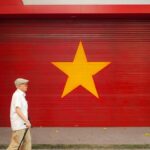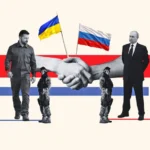This year, the 80th National Day of the country also marks my 80th birthday. My life has thus witnessed the immense transformations of the homeland and the great historical events of the nation over the past 80 years.
These include the resistance wars against the French and the Americans. These monumental changes have naturally become a part of me.
Therefore, witnessing the 80th anniversary of the September 2nd National Day, I have been thinking deeply about my country and the patriotism of the Vietnamese people.
Many believe that in the midst of today’s struggle for livelihood, patriotism has been overshadowed.
They do not realize that patriotism is like a silent, eternal stream, a flow of magma running deep within the Vietnamese people, waiting only for the right moment to erupt like a volcano.
I have seen that volcanic eruption these past days. In Hanoi, going out onto the streets, I see red flags covering the sky, young people flooding the streets, their eyes shining with pride and hope. An old soldier like me looks on, deeply moved.
Looking at the younger generation today, I have great faith. People often think that today’s youth pay no attention to history, care nothing for the past, and only chase a life of material enjoyment.
But by listening carefully to the inner souls of the young and looking deeply into their eyes, I see that patriotism is not the exclusive right of any single generation.

The previous generation expressed their patriotism through journeys crossing mountains and forests to the battlefront. The patriotism of today’s generation is about creation, enriching themselves and enriching the community.
All generations share the same diamond drop, the same powerful solution in their hearts: national self-esteem. I believe that if someday a force dares to touch the nation’s dignity, today’s youth will certainly know how to march to the front, as beautiful and heroic as their fathers’ generation.
These days have ignited many thoughts within me, including such reflections on today’s youth. It helps reinforce my faith in the nation, in the human spirit, and in the character of the generations of Vietnamese people.
And I think about the historical wind of the nation that has blown for 4,000 years, the wind of national self-esteem, carrying the blood and bones of millennia, especially the mountains and rivers of blood and bones from the past 80 years. A soldier who went through the war like me feels immensely emotional.
These days, my ears may be hard of hearing, yet the sounds of life, of the grand celebrations, still find their way into my heart. The musical pieces that entered history are now resonating again in the skies of Hanoi and reaching my soul.
The August Revolution was a tremendous effort by the nation to transform an enslaved people into an independent and free one.
After 80 years, the entire Party and people are making another great effort to rise up and create a new era.
Although our country is still poor today, and our compatriots still face many hardships, they are united in heart and strength towards a single goal: prosperity and happiness.
The 4,000-year history of our nation has proven that when all the people look in one direction, “any difficulty can be overcome, any enemy can be defeated.”
Looking at the youth, those who are out on the streets “loving their country” at this time, and the crowds flocking to cinemas to see “Red Rain,” my belief in this grows even stronger.
Traffic to the dedicated ‘Red Rain’ page on the Box Office Vietnam ticketing website is 6-7 times higher than normal days, sometimes causing the page to overload.






